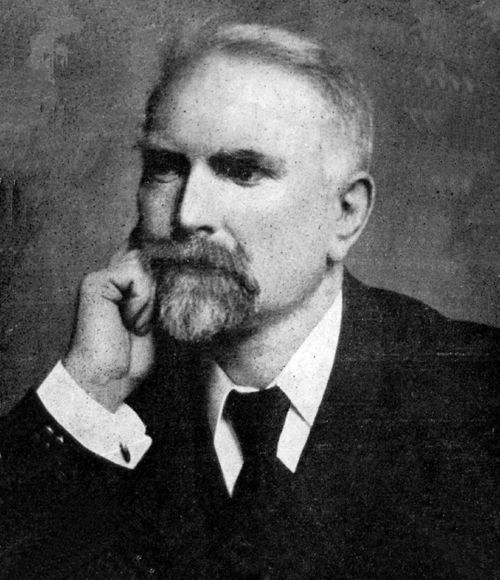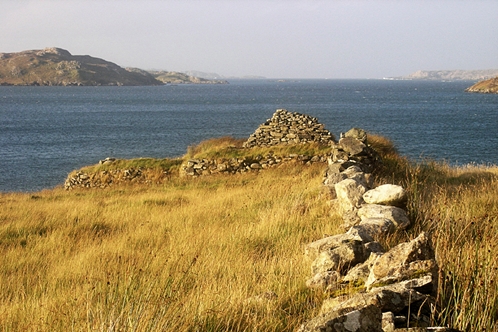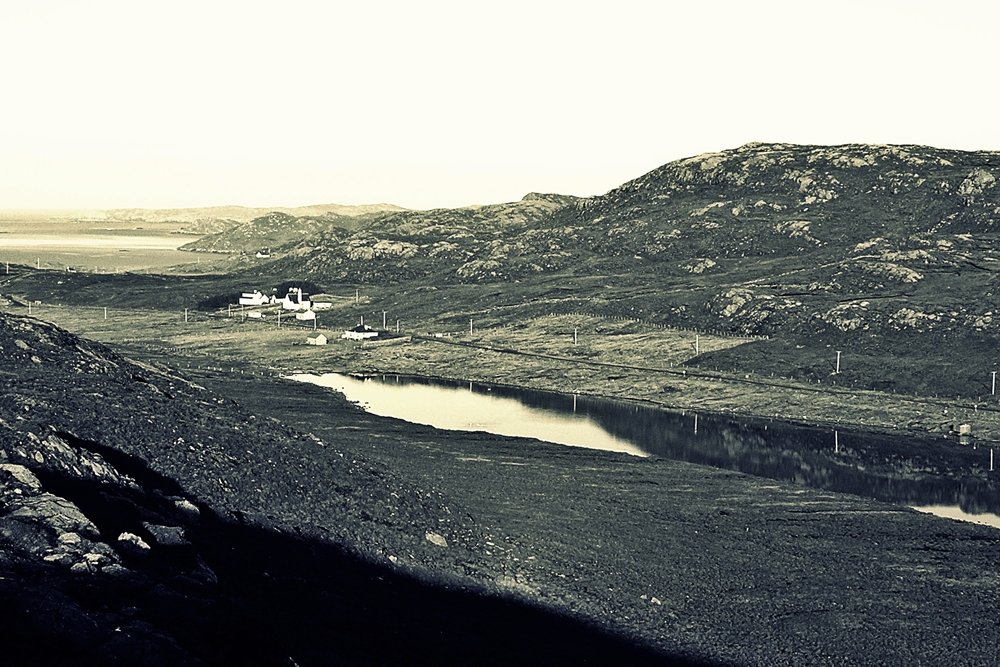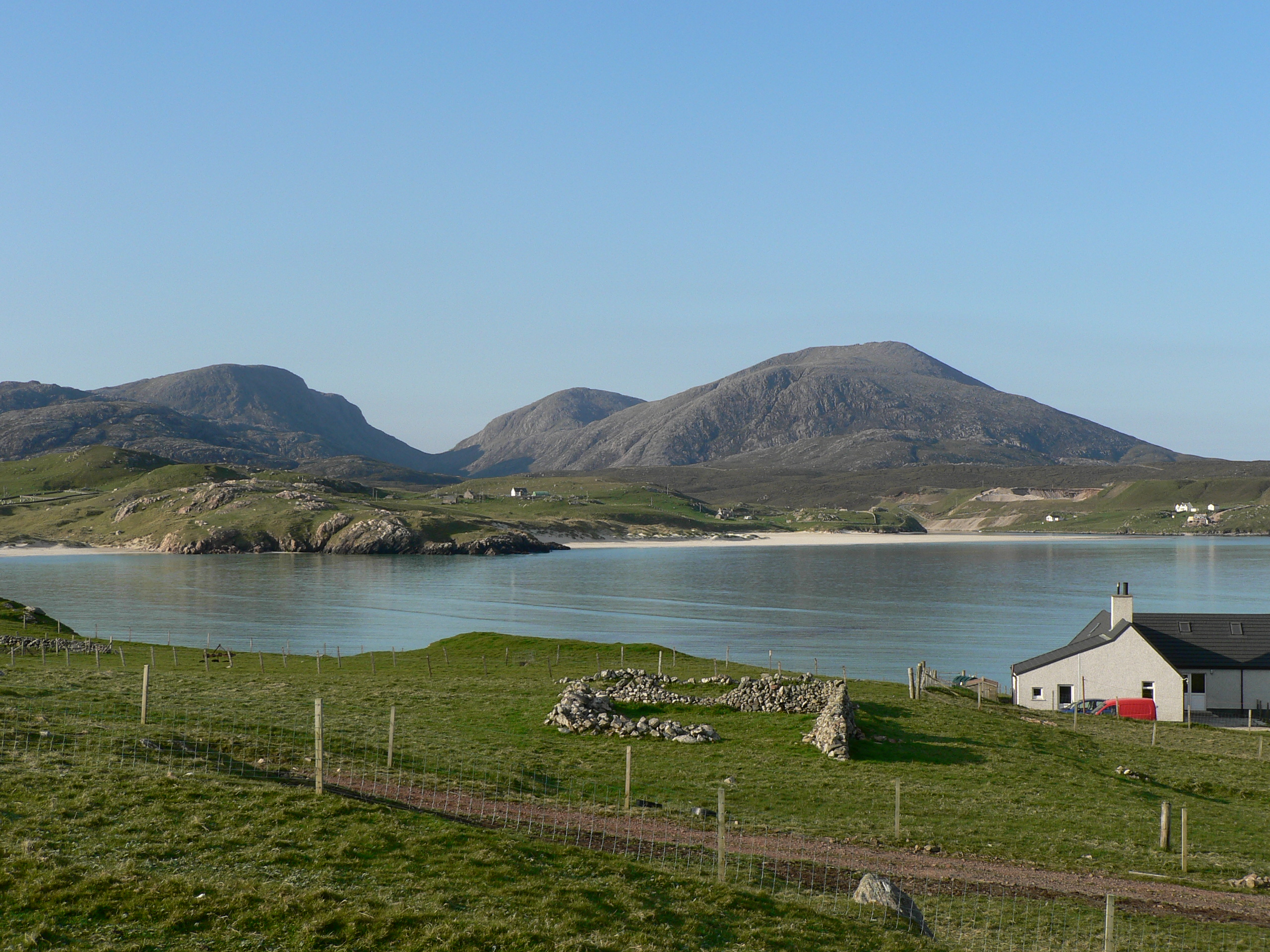Category: Bàrdachd
Amhran Lord Lever, le Domhnall Donn
Sgìre Ùige
Do Lorg ‘s Do Bhata Treun
Hi Ho Ro Tha Mi Duilich
Just now I am up in a cold land…
Just now I am up in a cold land
And a message has arrived for us to go to sea,
That the ships are now assembled and when night comes
We have to move off with them.-Murdanie Macritchie
This song was written by Petty Officer Murdanie Macritchie, Brenish, whilst serving during the Second War on HMS Cape Palliser escorting merchant ships on a Russian convoy, PQ-15, from Iceland to Murmansk. PQ-15 (not PQ-16, as previously thought) sailed from Iceland on 26 April 1942, reaching Kola Inlet on 5 May, after several air and U-boat attacks. In the convoy were 25 merchant ships that had arrived from various seaports in the UK, plus naval escort ships. An account from English sailor Geoff Hall aboard the Commodore ship, SS Ocean Voice on convoy PQ-16, later in May, gives detail of the run from the Clyde to Loch Ewe to Iceland and then Murmansk, and of being bombed.
To be as far away as possible from the enemy’s airfields in Norway, convoys from Iceland to Russia were routed close to the ice-edge, passing Jan Mayen Island, Bear Island and Novaya Zemlya then heading for the Kola Inlet and the port of Murmansk. Arctic convoys came under attack from aircraft, U-boats, large surface ships and light surface ships.
For the return journey, HMS Cape Palliser joined convoy QP-12 as an escort, arriving back in Iceland on 29 May. En route, one day near Bear Island, convoy PQ-16 and homeward bound convoy QP-12 were incessantly attacked by 108 waves of German aircraft. Seven vessels were lost including SS Lowther Castle, SS Empire Purcell and SS Empire Lawrence. SS Empire Purcell, on her maiden voyage, was loaded with ammunition and blew up when hit by two bombs. The Ocean Voice was also badly damaged.
Murdanie Macritchie survived the war and was ordained a minister in the Church of Scotland. A translation follows the Gaelic song.
An till mi gu bràth gu Eilean mo Ghràidh
‘S don a’ bhaile a rinn mi fhàgail
Faic mi tuilleadh le mo shùilean beanntan sgire Uig
No Mealisbhal ag èirigh an àrda?An cuir mi gu bràth mo ghuaillean ri bàt
Ga cur sios gu sàl air Mol Innis?
An cuir me tuilleadh na clèibh aig a’ Sgeir Lèith
Faic mise tuilleadh Mol Bhrèinis?An dìrich mi tuilleadh an àrd dhan a’ bheinn
A thrusadh na caoraich a-nuas?
Am faic mi iad tuilleadh cruinn anns an fhaing
An cluinn mi tuilleadh mèilich nan uan?Am faic me tuilleadh na mnathan a’ deaschadh biadh
‘S ghrian os mo chionn a’ deàrrsadh?
Faic me tuilleadh chlann nighean a chleachd a bhith ann
An cluinn mise tuilleadh an gàire?
O Tha Mi Dol Dhachaidh gu Eilean mo Ghràidh
Donald Maciver and An Ataireachd Àrd
 Donald Maciver was born in Crowlista in 1857, son of John Maciver, the Gaelic schoolmaster and missionary, and they lived in Ness and then South Lochs. Donald also became a teacher, at Lemreway (see the school log), Breasclete and latterly Bayble.
Donald Maciver was born in Crowlista in 1857, son of John Maciver, the Gaelic schoolmaster and missionary, and they lived in Ness and then South Lochs. Donald also became a teacher, at Lemreway (see the school log), Breasclete and latterly Bayble.
The family had come from Carnish, just across the sands, which had been cleared in the early 1850s. Donald would spend a lot of time in Crowlista with his maiden aunts, Mary, Ann and Effie, who were very enterprising. Effie used to take a passage to Glasgow, with tweeds and eggs to trade for goods which she sold on her return to Uig.
Donald composed An Ataireach Àrd when he was visiting in Uig accompanied by his uncle Dòmhnall Bàn Crosd, who had had left Carnish in 1851 for Canada. While they were walking around Carnish, long cleared of all inhabitants, the uncle remarked, “Chan eil nìth an seo man a bha e, ach ataireachd na mara.”
On being asked later about his inspiration, Donald said, “An Ataireachd Bhuan, or the everlasting blustering of the sea on the sands of Uig. Hero, Donald Ban, an uncle on a visit from Canada. Scene, Carnish Bay, which he left in 1851. This finest pugilist in the Island of Lewis in his day shed tears this Sunday afternoon in Carnish.” The song won first prize in the 1908 Mod.
An ataireachd bhuan,
Cluinn fuaim na h-ataireachd àrd,
Tha torann a’ chuain
Mar chualas leam-s’ e nam phàist,
Gun mhùthadh gun truas
A’ sluaisreadh gainneimh na tràghad
An ataireachd bhuan,
Cluinn fuaim na h-ataireachd àrd.
Gach làd le a stuadh,
Cho luaisgeach, faramach, bàn
Na chabhaig gu cruaidh
‘S e gruamach, dosrach, gun sgàth,
Ach strìochdaidh a luaths
Aig bruaich na h-uidhe bh’ aig càch,
Mar chaochail an sluagh
Bha uair sa bhaile-sa tàmh.
An Saighdear Chaluim Bhain
Donald Matheson, an Saighdear Chaluim Bhain, was a son of Malcolm Matheson (Calum Bàn) of Valtos and Crowlista. (Calum Bàn has some interesting ancestors who can be found by following the lines back via Hebridean Connections.) Donald was born in the 1740s and joined the army, serving at the siege of Louisbourg in 1758, and later with the 78th Seaforth Highlanders in India and Ireland. He returned to Uig where he married Chirsty Macdonald and had a large family.
One of their children, also Donald, joined the Hudson’s Bay Company in 1815 and was offered land in Manitoba, but came back to Lewis in 1821. He married Helen Maciver of Carnish and lived in Timsgarry until they emigrated to Nova Scotia; three of their children were born in Lewis and nine more in Canada. After Donald Sr. died in 1831, his widow Chirsty joined the rest of the family across the sea.
The following song, An Saighdear Chaluim Bhain, is said to have been written for Donald Sr during his time as a soldier in Ireland, though whether by Chirsty is unknown.
Hi horaibhe hoirinn hoirinn
Hi horaibhe hoirinn ail
Hi horaibhe, och is eileadh
Leamsa b’eibhinn d’fhaicinn slan.
Chuir iad thu air tìr an Eirinn
‘S aotram bha do cheum air sràid
Chuir iad umad dèise an t-saighdear
Bu fhèin an diaman a-measg chàich.
Seòldairean na Bàgh

Verses about the boys from the Bays, by Donald Macleod (Dòmhnall Eachainn) of 10 Geshader, who was born in 1874 and spent his working life in Glasgow. This hasn’t seen the light of day for some time; thanks to the family for providing it.
Bho Ghiosladh gu Gràsabhaig
‘S h-uile h-ait ‘s na cuiltean sin
‘S na seòldairean a’dol gu sàl
An uair theid each don cùlaisdean.
An teid thu leum do Bhearnaraidh
Gheibh sinn bùntata ‘s crùbag ann
An teid thu leum do Bhearnaraidh
‘S mo lamh gu dean sinn sùgradh ann.
Donnachadh Gioslaidh ‘s Iain Màsach
Am Brace is da shuil ùr aige
‘S Seonnaidh Gorabhaig sa mhàthair
Dol air sgàth na h-ùmhlach leotha
Òran Màiri Dhall (Och nan och, tha mi fo mhulad)
Màiri, born 1841, was a daughter of Murdo Maciver and Mary nee Morrison, of Pabbay, 11 Kneep and later 25 Valtos. She emigrated to the United States and while there suffered greatly with homesickness and composed the song Och nan och, tha mi fo mhulad. According to tradition she lost her sight with the associated weeping but it is more likely that her blindness was caused by some substance used in her daily work in a laundry. Màiri did eventually return home to Uig. Her grandfather Norman Morrison was also blind, a consequence of his service in Egypt with the Ross-shire Buffs (78th).
Does anyone know more verses than these nine?
Nuair a rinn mi airson fàgail
Fhuair mi beannachd mo chàirdean
Ghabh mi ’n t-aiseag air a’ bhàt’
Gu ruig’ sàil nam beann mòr.
Och nan och, tha mi fo mhulad
Dhomhsa tha mo chòmhradh duilich
’S cruaidh an càs ach ’s fheudar fhulang
’S mi fuireach ann an coille mhòir.
Nuair a thàinig mi air fòrladh
A dh’Amearagaidh a chòmhnaidh
Chunnaic mi a’ sin luchd eòlais
Anns gach dòigh sa robh iad ann
Fear a’Bhàta
Cnip, by Peggy Eric Maciver
Lochcroistean
Norman Macleod, Am Bàrd Bochd, taught at Lochcroistean school from 1936 to 1943, and was a noted bard who composed the following about Lochcroistean and some of the people he knew there. The last four verses constitute his song about the people of Geshader.
Lochcroistean School was in use until the new Uig school opened at Timsgarry in 1972. The building housed the Comann Eachdraidh museum for many years and is now a cafe and visitors’ centre.

Air sgiathan m’ inntinn siùbhlaibh mi
Do ghleann tha àillidh ciùin,
Is tillidh trian de m’ òige rium
Is triallaidh trian de m’aois
An dìomhair smuain thèid mi air chuairt
Le aoibhneas cuimhne blàth
Do ghleann a dh’fhàg a dhealbh nam chrìdh’
Lochroistean anns na Bàigh.
Tha ìocshlaintean s an t-sàmhchair ann
Is slàinte ruit a ghlinn;
Tha tàladh sìor is bàrdachd
Ann am piurbraich bhreac na uillt;
‘S nuair thilleas mais’ is dìomhaireachd
a shamhraidh cheòlmhor eun
Bidh coilich fraoich ri dùrdail
Is ri tùchan air gach sliabh.

